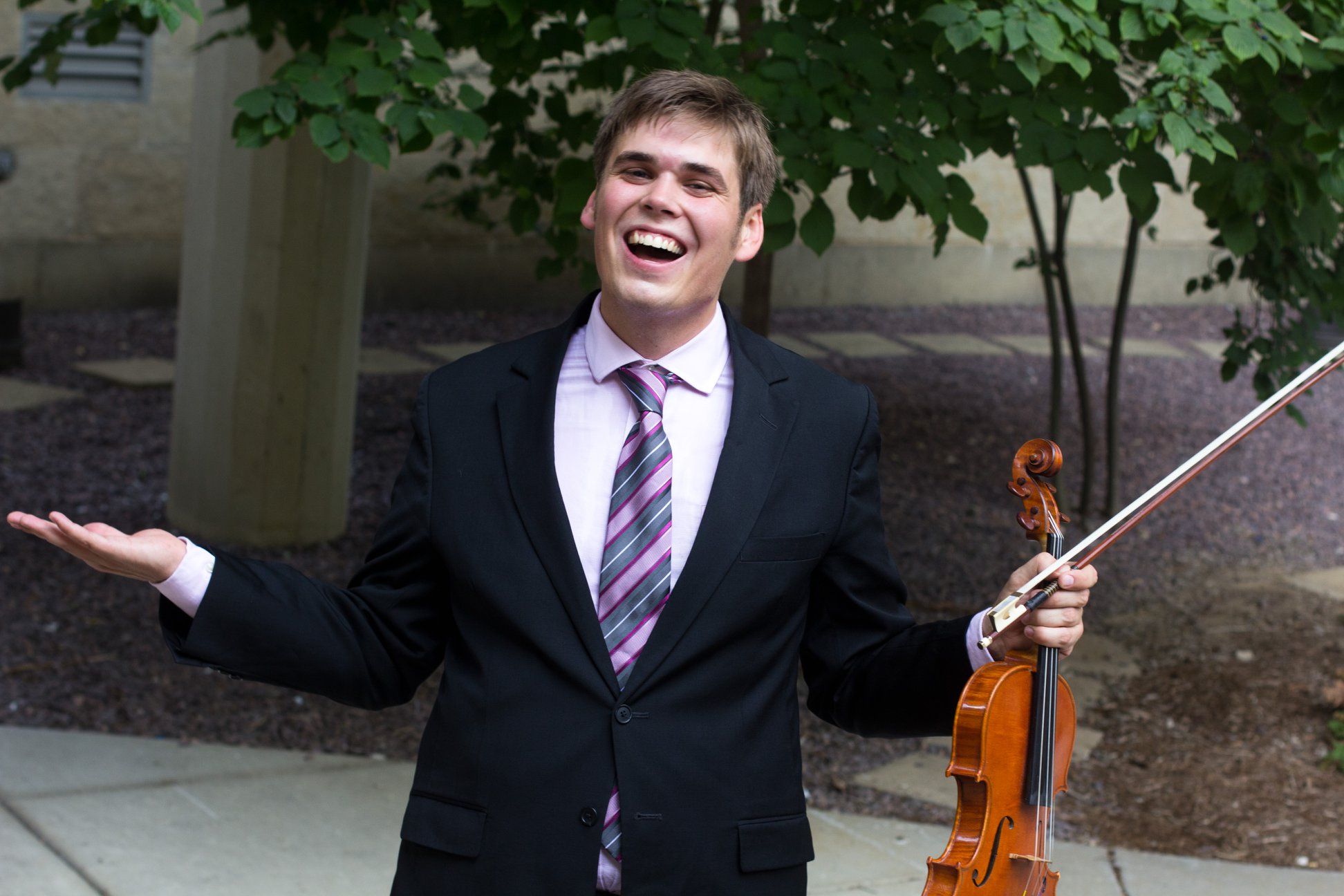BLOOMINGTON, IL–As Maestro Ken Lam announced what he called the “main dish” of a three-course musical meal Saturday at Bloomington’s Second Presbyterian Church, musicians adjusted their chairs to make way for their colleagues near Lam’s podium. As the evening’s soloists, Illinois Symphony Orchestra (ISO) concertmaster Roy Meyer and principal viola Nicholas Jeffery took their places at the front of a small group of musicians, one of two concerts for chamber orchestra this season. In a program titled Magnificent Mozart, Meyer and Jeffery tackled the last of Mozart’s three double concertos: the Sinfonia Concertante.
“Who doesn’t like Mozart?” said Lam, introducing one of Mozart’s most recognizable works. And surely, it was a sympathetic audience with plenty of interest in the 18th century composer. Lam, appointed music director in 2017, is not one to simply sit back and coast on popular works, though there is plenty this season to appease concertgoers disinterested in risk taking. But here, Lam’s Mozart-themed evening is smartly accompanied by 20th and 21st century composers: Igor Stravinsky and Jennifer Higdon.
The evening opened with Higdon’s To the Point, an excerpted arrangement for string orchestra from her 4th string quartet, first composed in 2003. The title refers not only to the work’s pricked, precise sound quality—alternating between pizzicato and bow and drawing inspiration from Debussy and Ravel’s encounter with gamelan music at the 1889 World’s Fair—but also to its brevity. At just about four minutes, Higdon truly does get to the point, providing no opportunity for superfluous flair or gratuitous schmaltz. And that may be the difference between her approach and Ravel or Debussy’s in this piece. Condensed to a small bite, it’s the Twitter version of a too-long Facebook post.
Higdon and Stravinsky are more similar than you might imagine, at least in Lam’s selections from their catalogues for this program. The closer, Stravinsky’s Dumbarton Oaks sounds like a departure from his more well-known works. Specifically, this is cheerier than those, commissioned by Robert Woods Bliss in celebration of his 30th wedding anniversary to his wife, Mildred. Stravinsky borrows from Bach and leans into his habits, but there are also strains which sound distinctly like some of this Russian composer’s American contemporaries like Aaron Copland.

I think my point is that each of these selections draws from a well of influences and puts those in a blender with a hearty helping of themselves—that goes for Mozart too, whose ingenuity is undeniable, but he was not exactly creating in a silo. And if I had to look for one other common thread between this trio of works, it would be their shear difficulty, particularly when one considers the vulnerability of chamber music writ large.
A few misses in the Mozart could be chalked up to the boomy acoustics of the church, and it honestly didn’t matter that Meyer and Jeffery weren’t quite perfect. For this spectator, Mozart is not about hitting every note, but about the sensations which pulse through each listener—the anticipation of thinking we know what’s next, and every once in awhile, being surprised by the composer’s decisions. It’s not unlike my reaction to Dumbarton Oaks, each time I hear it. It’s a curious beast that never quite resolves how you want it to, and that’s part of its charm. This difficult piece was perhaps the most triumphant accomplishment of the ISO on this night, my first experience with this orchestra, and I’m anxiously awaiting the next I get to spend with them.
Header photo: ISO concertmaster Roy Meyer is a featured soloist in Mozart’s Sinfonia Concertante, part of Magnificent Mozart at the Second Presbyterian Church.
